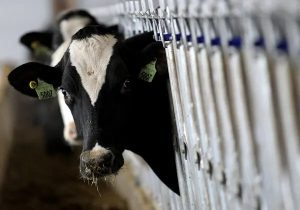
While most people still feel comfortable and happy with the consumption of milk and other animal products, the detractor groups amplify their message with spurious arguments that are taking root in the belief system of a few, enough to modify the agendas that govern the lives of all.
Everyone can do what they want, but it is not possible to coerce governments to hinder the production of food accessible to all mankind, which for the first time in history and within the last twenty years knew what it was to have more food than they could consume, at the lowest values ever achieved.
We always talk about the fact that if we work to better inform the community about farms that works responsibly in the production of safe food, taking care of the environment and attending to animal welfare, we could counteract the effects of misinformation. However, better knowledge is not enough for everyone to accept agricultural methods in their system of principles and values. And it should not be a group to be resisted or insisted on informing, but rather should be seen as a market open to receive alternative proposals, and to pay for them, which in any case it would be intelligent to take advantage of.
Sounds good, doesn’t it? But wherever there is something to take advantage of, there is no lack of those who take advantage of the concerns of those who trust the fallacies of these “merchants of fear”.
The “anti-animal” food lobby today uses the climate argument to push its agenda, leaving behind the animal rights battlehorse, now the climate issue is more effective. Cows no longer suffer in dairy farms, now they are responsible for global warming.
It is time to lose innocence in the way we look at these issues. There are powerful groups that are embroiled behind the popularizing discourse that agriculture and livestock poison the water, the air, pollute the soil, spray us with chemicals that reduce our life expectancy and the habitability of the planet. It does not matter if what they say is false, because we are no longer guided by science and facts.
Public affairs have their germ in the disputes proposed by activism, which triggers belief systems that finally generate regulations; we lose autonomy, and that is when we no longer have the opportunity to choose, but the what and the how are imposed on us.
It is clear that global warming exists, and that it is everyone’s responsibility to contribute to the reduction of greenhouse gas emissions. It is also clear, or should be clear, that the incidence of livestock breeding is minimal compared to other situations that must be resolved in order for the actions to make sense, such as the use of fossil fuels for energy generation, transportation and industry.
However, activism has made serious governments such as those in Europe take decisions such as in Holland, which will require its producers to reduce emissions by 40%, which means the elimination of 30% of livestock. The alternatives offered to its producers are to close down, relocate or become more “sustainable” by turning their businesses towards rural tourism, or the cultivation of vegetable proteins under agro-ecological systems. No, this is no joke.
Nothing has been learned from the lessons of the failure in Sri Lanka, which embraced the adorable agroecology and soon plunged into a very serious food crisis. Ah, but they will be healthy by 2030!
For whom are the governments that promote an adverse public opinion towards the farm, so much so that they include it in their films and educational material? The defamation of the productive sector is organized, it is official, and it is worldwide. If the farm is attacked because it is a natural opponent of socialist policies, because it could finance a real opposition that would make things difficult for the fanatics of state intervention, we could go back to the beginning and ask who finances the activists.
For whom does the political power that supports subsistence farming and ranching under the cloak of the goodness of caring for the environment and helping people to progress rule? The machine of manufacturing poor, malnourished and dumb people works perfectly and the secret ingredient is to have them convinced that it is for their own good. Meanwhile at the other end of the chain, the business of carbon credits is born and grows.
Governments such as that of NZ legislate to tax emissions from agriculture and livestock. Each sector and each individual has the responsibility to reduce their emissions, and agriculture and livestock cannot remain oblivious to this, but why is methane emitted by livestock not recognized as a short-lived gas, belonging to a biogenic cycle, not comparable to fossil fuels that pile up in the atmosphere for a thousand years, and why is this discrimination not made in the calculations for carbon sequestration? Decisions of this type should be based on science and not on demagogic agendas.
Whatever the activism and politics say, dairy consumption will grow globally, and New Zealand and the European Union, the major suppliers, will not be able to catch up with demand because they are limiting their capacity.
In addition to the pressure of environmental commitments in the most developed countries, there is the shock of the pandemic and the war. Latin America has a unique opportunity in this context, given that the levels of intensification of dairy production systems prevailing in the region are still far from being met by international regulations concerning greenhouse gas emissions. Let politics and activism not make us miss the opportunity.
Consuming dairy products is good, and producing them is a great and noble task.
Have you had your glass of milk today?
Valeria Guzmán Hamann
EDAIRYNEWS




















